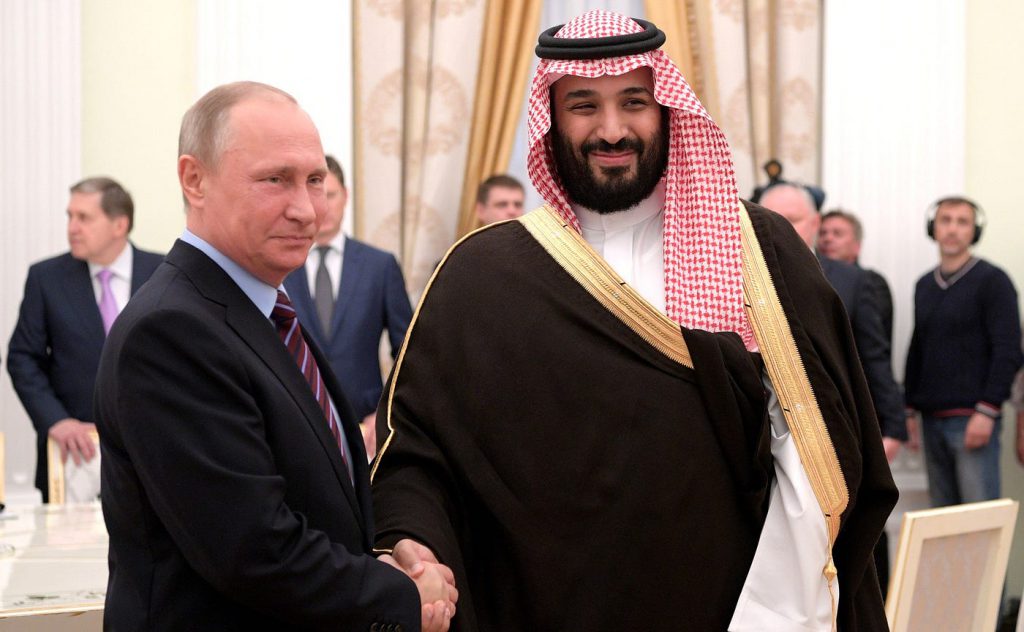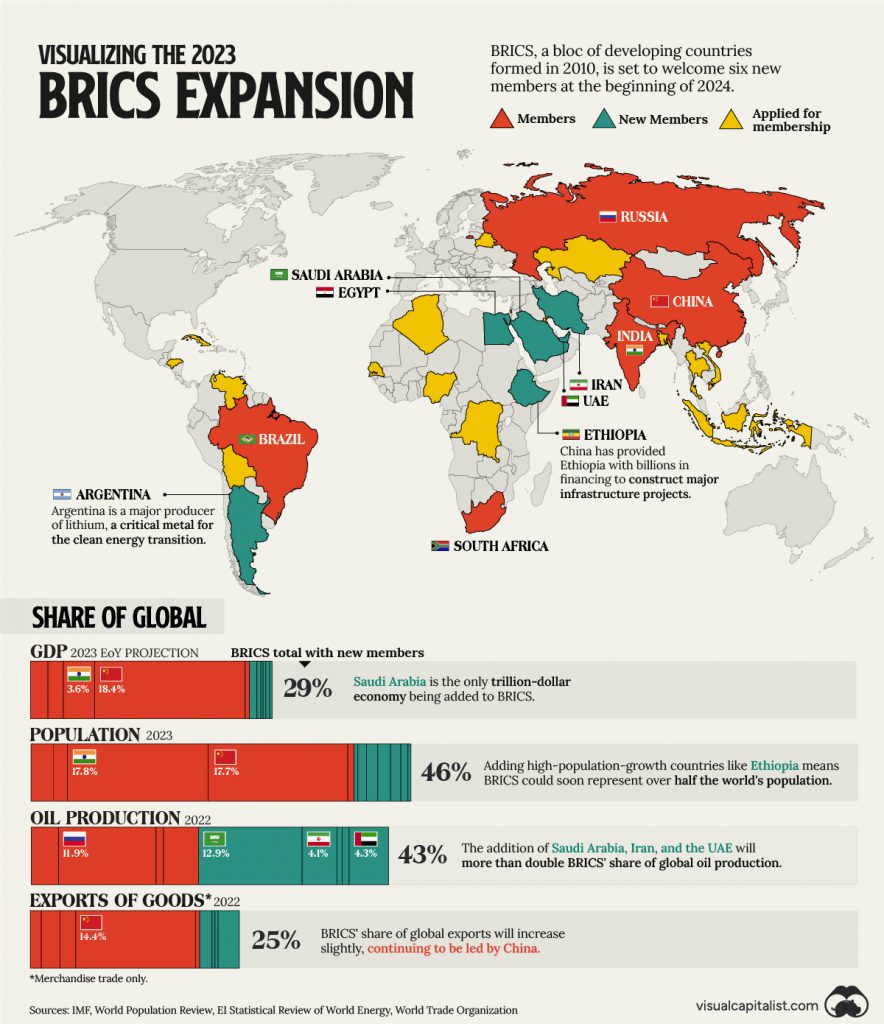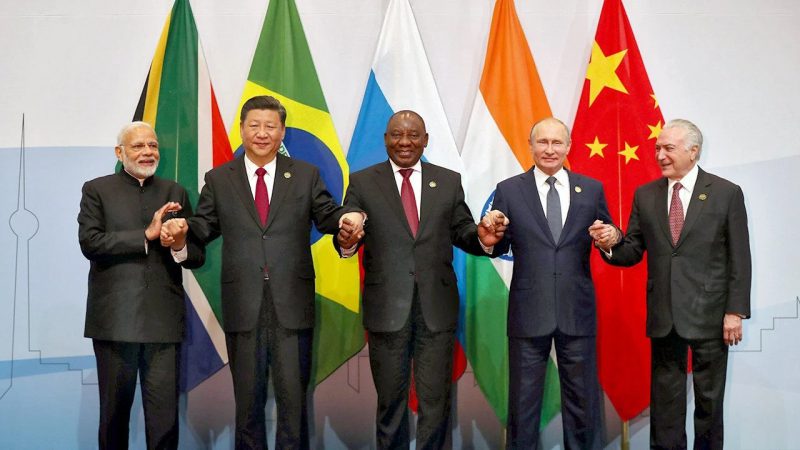With the BRICS alliance set to be expanded by six countries, the bloc is now responsible for 43% of all global oil production. Indeed, data released by Visual Capitalist shows that the introduction of Saudi Arabia, Iran, the United Arab Emirates (UAE), Argentina, Ethiopia, and Egypt has pushed their combined oil production to almost half of the entire world.
The development is certainly important for the bloc’s quest for a multipolar world. However, it coincides with its ascension in terms of global population. Specifically, the BRICS now account for 46% of the world’s population, with that number potentially set to increase due to high population growth figures for Ethiopia.


Also Read: BRICS Expansion Set to Reshape Global Economics
BRICS Account for Almost Half of All Oil Production
Just last week, all eyes were on the BRICS annual summit. The 2023 event was poised to be one of the most important in the history of the alliance. Specifically, ideas like expansion and currency usage were set to be discussed. Nevertheless, the bloc ended up embracing both ideas wholeheartedly.
Now, the BRICS bloc is responsible for 43% of all global oil production following its expansion. Importantly, the six joining countries mean the bloc maintains six of the largest oil productions in the world. Moreover, it could continue to hold on to energy production globally, with countries like Argentina seeking to continue being major producers of alternatives like lithium.


Also Read: India Ditches US Dollar in Historic Oil Deal With New BRICS Member, UAE
Additionally, the expansion also grew the bloc’s already impressive population figures. Now, the economic alliance comprises 46% of the entire global population. Yet, that figure could continue to grow as the countries themselves continue to establish themselves. Specifically, Ethiopia is expected to continue to increase its population, pushing that figure upward.
Conversely, the presence of Saudi Arabia, Iran, and the UAE certainly changed the outlook for the bloc’s oil production. Moreover, it should certainly have massive geopolitical ramifications. Informing the bloc’s already-embraced de-dollarization efforts as it settles oil sales in local currencies.





